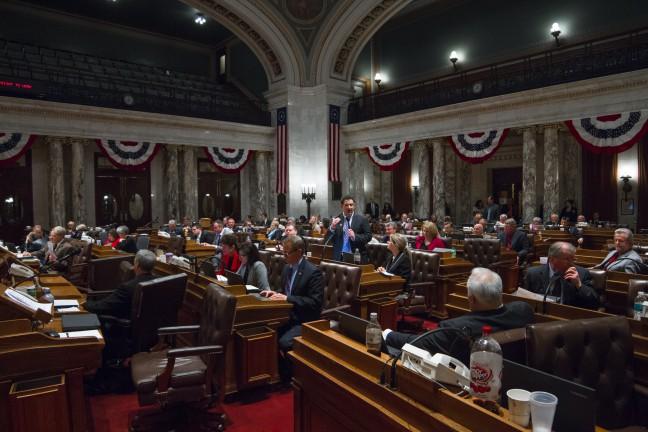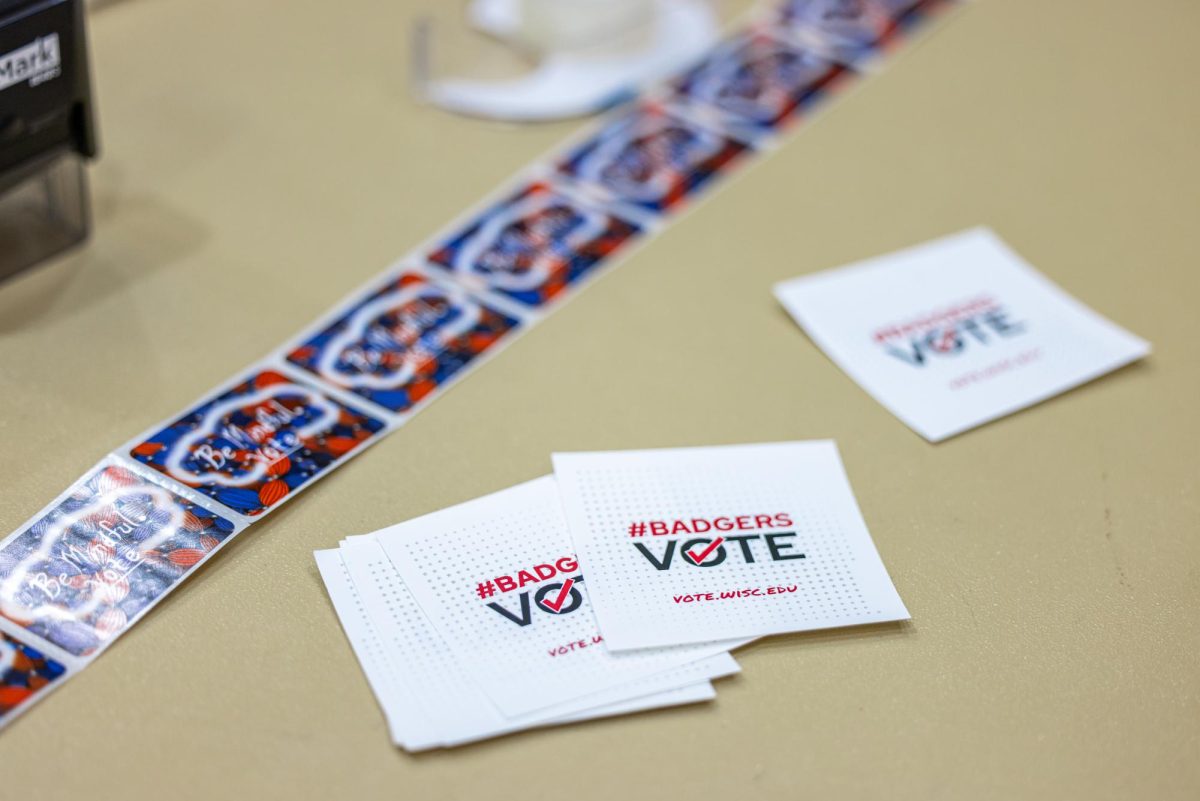In an overnight session, the state Assembly Friday morning approved a controversial right-to-work bill, sending it to Gov. Scott Walker’s desk.
The Republican-led Assembly passed the bill on a 63-35 party line vote, after a debate that started Thursday morning and ended Friday around 9 a.m.
Walker has said he would sign the bill Monday, making Wisconsin the 25th state with a right-to-work law.
“Right to work is right for Wisconsin,” Assembly Speaker Robin Vos, R-Rochester, said in a statement. “It’s now time to make it work for Wisconsin and our economic future by bringing more jobs and businesses to our communities.”
Right-to-work laws prohibit contracts between employers and labor that require workers pay union dues, which supporters say gives workers the freedom to choose whether or not they want to be part of a union.
Opponents, meanwhile, have said right-to-work laws essentially dismantle private-sector unions.
The Wisconsin AFL-CIO has hosted several rallies against the bill at the Capitol, including a rally on Thursday, but the the numbers paled in comparison to the tens of thousands that rallied at the state Capitol in 2011 to protest over Walker’s Act 10 law.
Rep. Chris Taylor, D-Madison, who spoke for about an hour straight at one point during the debate, said in a statement that right-to-work laws “drive down wages” across the board and noted concern over access to health care and workplace safety under the bill.
“Instead of investing time on this divisive, dangerous bill, we should have spent the last twenty-four hours and out time so far on policies that create economic opportunities for hard working Wisconsin families and our children,” Taylor said.
Rep. Adam Neylon, R-Pewaukee, said in a statement the bill does not void labor contracts already in place, but rather makes union membership voluntary.
“Unions that provide good value at a good price for their members will not only survive, they will thrive,” Neylon said. “Forcing employees to join, or pay dues to, a union as a condition of their employment is wrong.”
The bill passed through the Legislature through an extraordinary session, which are generally used to expedite bills.
Sarah Zimmermann contributed to this story.














